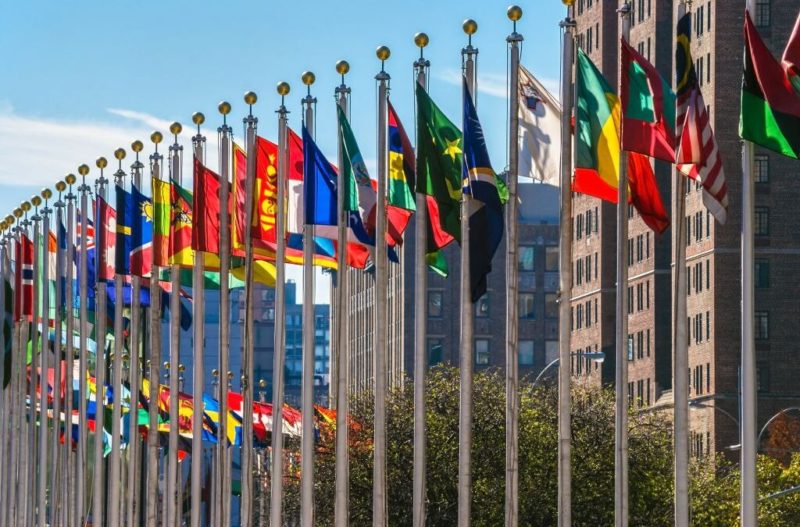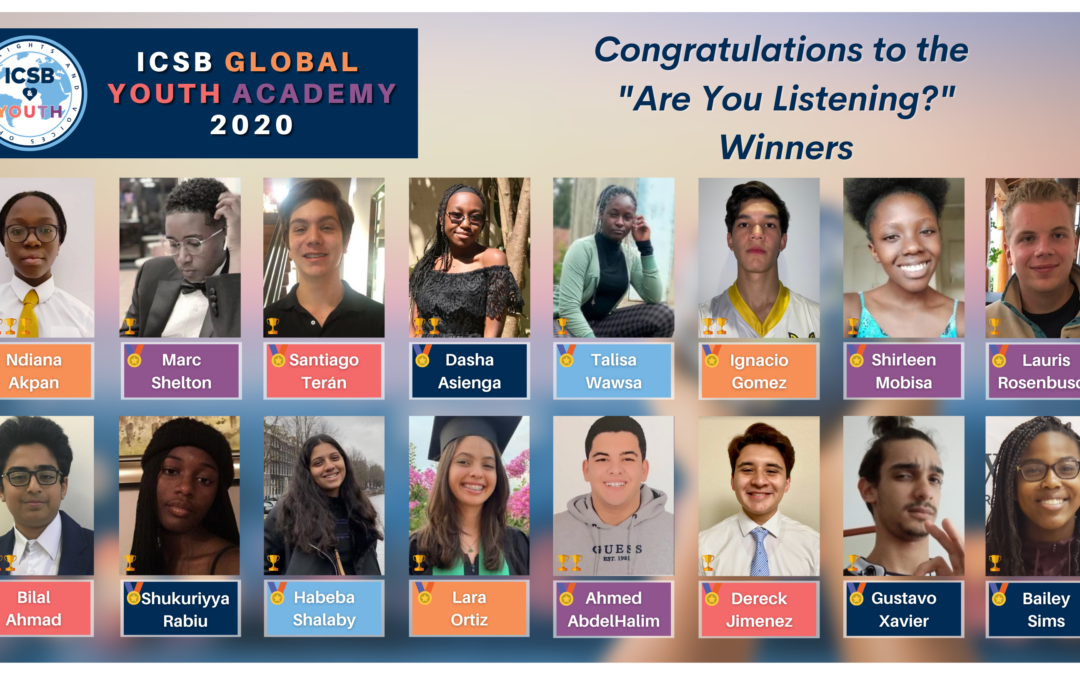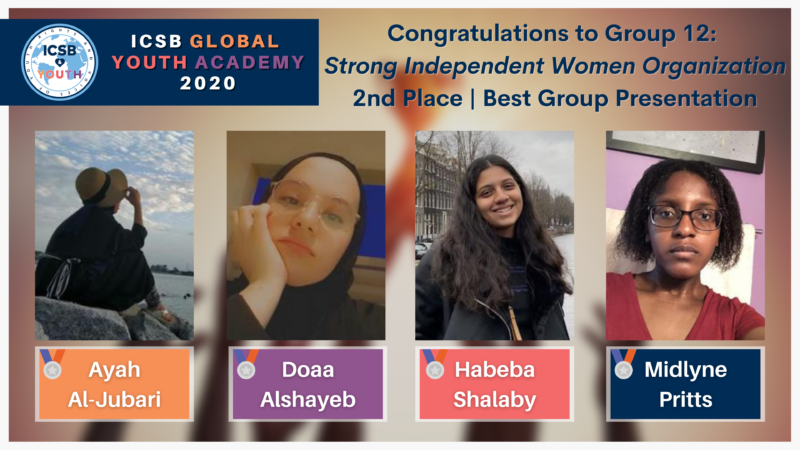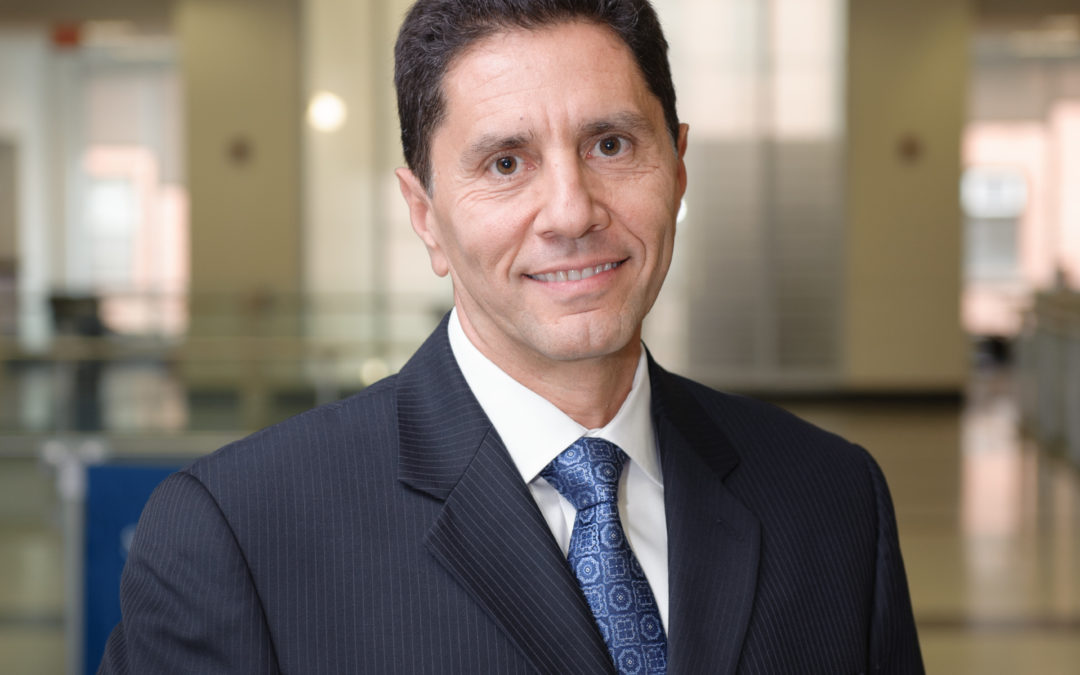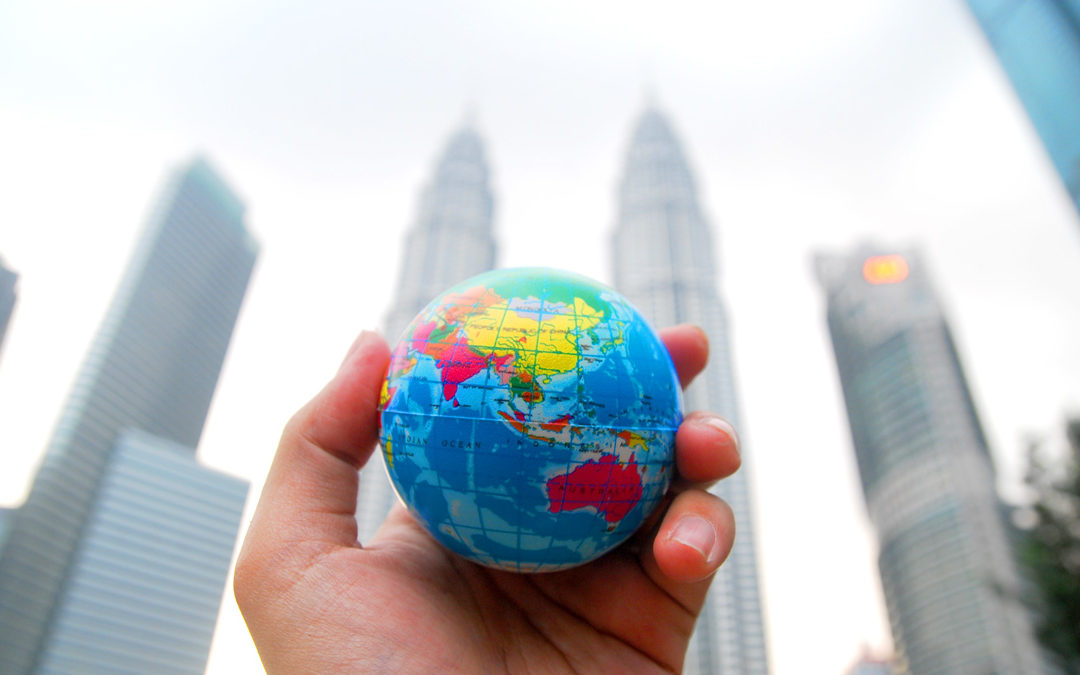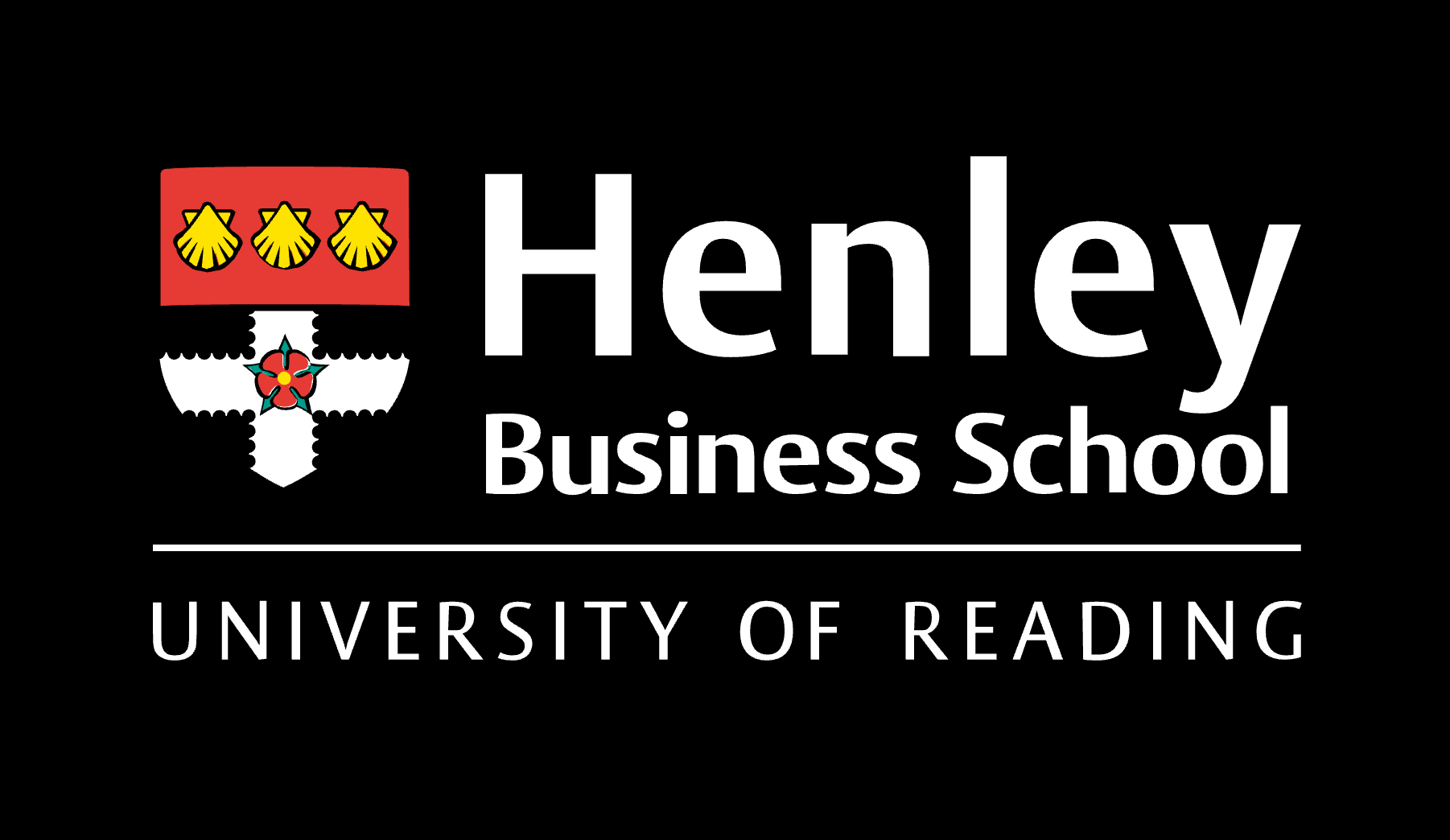These are the words of Dr Ayman El Tarabishy, the executive director of the International Council for Small Business (ICSB) and deputy chair of the Department of Management at the George Washington University School of Business. Public Accountant connected with Dr El Tarabishy and spoke about the unprecedented situation we face as a collective. We delved into the impact on humanity, on small business, and how we can ensure a safe passage through the storm.
How would you say small businesses are faring given the unprecedented disruption to life, to work, to our existence?
It’s beyond worse. You think worse, think worse than that for small businesses. It is just horrible for them on many fronts and, in particular, aside from the financial hurt, aside from everything else here, is that they’re basically looking at their businesses and closing shop because it’s that bad basically.
Even though there is a lot of talk about supporting them financially, it hasn’t reached them yet, and even if it does reach them, the question is how long this will last. The biggest challenge they have is the question of when this will end. It’s the unknown that is really their biggest enemy; it’s the key factor of the unknown. When will this end so they can work backward?
Are the governments, the banks doing enough? Especially given the chunk of the economy that small businesses account for, what are the economic implications?
I think the banks are trying their best. I think they’re overwhelmed. It’s beyond a flood; it’s a tsunami on the banks themselves. But is it enough? I don’t think it’s enough in terms of their capacity to reach out to small businesses. I don’t think the funds are enough for small businesses.
Speaking about the US situation, I think they probably need a second or third stimulus just to get them going again. And all of that is just to keep them alive and surviving; then we need to think about how to get them going again, how to get them to expand and to grow and to build. That is a whole different discussion.
So, is it enough? No. Can more be done? Absolutely. Is there anyone to blame? It’s an overwhelming capacity that everyone needs to handle. The biggest threat, the biggest enemy is the unknown. We will sort out, finally … the money will start flowing at some point; they will start getting their funds, everything will be systemised, but for how long and how much?
Imagine you are a small business and you’re sitting there at night on the kitchen table, and you’re saying, “OK, I have eight employees, and I have to pay all of these expenses, and I have to figure out how to survive, so I’m in survival mode now.” So, you do what I call an emergency dashboard, where you have three categories – most critical, important, and nice and not necessary. So, clearly, you’ll eliminate nice but not necessary, then you’ll start looking at the important stuff, and you’ll say, “OK, maybe I can keep one or two of these things.” Next, you’ll look at the critically important or the must, and then you’re overwhelmed because it’s such a huge list, and you realise that the important stuff has to go as well. So, you’re left with the bare bones, the stuff that will make you survive.
Now you start doing the scenario, let me cut this, and then you get into the discussion of how much you can pay your employees. So, you start with 100 per cent, but then you start asking yourself how long you can do this: “Maybe I should just start off the bat and reduce everybody by 30 per cent, which gives me another six months. But maybe 30 per cent is not enough.” That becomes a guessing game at best, because if they had a date to work with, say six months, then it’s a maths problem to solve.
You said recently that 25 per cent of US small businesses would close. How does this translate to a global level?
It depends on the country; for example, in Italy, it will be much worse. Some will be much less. Across the board, it will be 25 per cent, and that is a churning effect, that’s the bad news.
So, what will happen is, with the right stimulus, with the right incentives, two types of businesses will appear. So now we need to look at how we accelerate the introduction of these new types of businesses. We can talk about the gig economy; we can talk about the delivery economy; we can talk about the different economies that can come in to replace some of these businesses.
In a blog you wrote last month, you spoke about the needs for business owners to not only take the lead in a time of crisis and show the innovative strength to forge forward. Tell me about this, and do you think innovation can thrive in a situation like the one we see around the world at the moment?
There are a couple of things that we know about small businesses. They are resilient, that is the nature of small business. But there are going to be two parts that we need to add to this, that are going to be very important, not just innovation.
Innovation was nice, but now what we’re looking for is frugal innovation.
Can I do something with one-tenth of the cost? So, frugal innovation becomes a must for small businesses. The other thing is, which is also critically important, and we’ve heard it before, but it is going to come to the forefront here – reverse engineering.
So, let’s reverse it, let’s do it at one-eighth of the cost, which is not frugal innovation.
Frugal innovation is where you’re trying to find shortcuts; reverse engineering is where you ask how you can take it apart and put it together in a different way, which costs less. This is where small businesses will lead the way.
Are small businesses up for this massive challenge? We know that aside from hitting them hard financially, this is taking a very big mental toll on business owners. Are they capable of thinking this way at this moment?
I think so. I think a lot of small businesses have a clear understanding that their role in society is not just to be a small business. I think their role is to be the fabric, the humanity of society. That’s why we call them lifestyle businesses. That’s why we have them. That’s why they enjoy being part of society.
And everyone is hurting now because of physical distancing. But one day, when this is over, when these small businesses start to open again, you’ll see a difference, you’ll see people walking in the store and really happy and glad that they are there.
So, they can do the little chit chat; they can make the little complimentary remarks, they can do the small little things, they can simmer around a bit and enjoy the moment, which we took for granted because we got busy with life. Now life is telling us to slow down.
What I like to say is that this was a wake-up call. Nature scored one goal, and technology zero. The world realises that nature is important, humanity is important and technology can take a backseat because we’re hurting. Nature has pulled a big one on us.
We talk a lot about sustainability here and the importance of going sustainable for businesses. Do you think this whole situation is a wake-up call in that direction, too? Can we expect a shift of perception on this topic?
I think so. I think we’ve passed the stage of trying to convince people that we realise that this is not negotiable. Now we need to all come together and realise that sustainability is the new normal.
So, you’ll start seeing a shift with how we consume a thing, how we buy things and so on. Everything will be recalculated and rethought. It is not just about the bottom line anymore; it is about humanity. Everything you see, from how we plan a conference to how we plan seating arrangements, how we plan accommodation, how we plan everything, will be rethought because this can happen again. The world is practising for the future.
You spoke about this being a crisis of humanity, human culture and ideology. What do you think operating a business will look like a year from now?
At the ICSB, we coined this term three or four years ago; we call it humane entrepreneurship. Entrepreneurship that is humane. We deal with the public, the staff, society in a humane way. This means tolerance, empathy, kindness; I think that’s where we’re heading now.
Speaking to small business experts from the US, I know that small businesses over there have that “we will rise again” attitude, “fail fast, fail often, but get up again”. Aussies tend to lack that sort of approach; how important is that today?
I think it has to be started somehow. We’re in a new decade, and I think everybody wants to forget 2020. I think we need to think of a 10-year plan of how to deal with small businesses. I think Australia should look at this – here is what we will commit to small businesses for 10 years. Not the details but the guiding principles. And the guiding principles are that no matter what happens, they will lead us in good times and in bad times.
That can galvanise a lot of people to come to the table and say we can trade and negotiate details, but if we can all agree on some guiding principles … For example, a guiding principle is: all small businesses are important. So, now they know that no matter what happens in the future, everybody will have a voice. Everyone is important. From a small business working from home to a 60-people business. Everyone is equal.
Another guiding principle can be: small businesses are the backbone of our society, and we will try to think of innovative ways to support them. Someone asked me recently, who is going to pay for this? Of course, in the end, the taxpayers will pay, but there are new ways to make the taxpayers pay. It doesn’t have to be huge sums; it can be incremental things. But things like a delivery tax, there can be different ways of thinking about these things.
Economists can think of new and creative ways to do it. But big national plans need to be put in place.
I wrote an article recently called “An audacious plan to save SMEs”, and this is just for the US, but the concept is that all nurses and teachers should have army veteran status and privileges. Because this is a war. In the frontlines, we’re not using soldiers; we’re using nurses and teachers. We need to think about this. I am thinking big here, but Australia should have a national plan for online education. When anything happens in the future, you already have a plan, infrastructure, standards, so when something like this happens, we flick a switch, and everything goes online.
In the audacious plan, I said that the internet should be a right for every individual. That can be taxed like water … But that’s the deal. So again, people think it’s socialism, but I think it’s more than that. There are other ways to be innovative.
What is the ICSB currently doing?
We are doing some great things, some are small scale, but I’ll give you some of the big ones that I think will have a big impact here. We’re a platform that brings everyone together from the World Bank to the IMF, the OECD … They’re producing a lot of content. So, we’re asking them to give us their executive version of the content they’re producing, and we will take it and consolidate it in the Global MSME report that is coming out on 27 June. That helps capture a lot of voices in one place; from there we will do a summary of everything available, with a roadmap for moving forward.
We’re also galvanising a lot of different members, from researchers to policymakers, to think about creative ideas. So, for example, in the US, while we knew this wasn’t going to happen, we asked for small businesses with 50 employees or fewer to be considered as not-for-profit for the next 10 years. That’s ridiculous because that’s how they make their money from tax, but we wanted to spark a conversation.
If you think of them as not-for-profits, so they’re not going to give you back the money, you need to think of ways to keep them alive, so they can hire employees and pay employee taxes.
So, that solves a lot of problems. People think: “If I start a business and I take some of my savings, and I start making money, and I start hiring people, and at the end of the year I have some money left, the government is not going to touch me.” That’s not going to happen. But it starts a conversation.
Not knowing how long this will last, what is your advice for that business owner sitting at home and wondering what to do next?
Humanity comes first. So, I think everybody is patient with humanity. So, we can save as many lives as possible. After that, when things slow then, and we’re over the curve, we’ll see a lot of enthusiasm, a lot of happiness. This is when a lot of people will be willing to celebrate. This euphoria. OK, we’re moving again, things will start happening. People will want to get back to life as it used to be.
This is a time to plan. This is a time to put together your world.
I tell my colleagues: this is a time to create your digital presence. Get ready with everything digital, your company, your profile, your brand. This is also a time to reconnect with everybody. I tell them: divide your day into three parts.
The first part is looking at your emergency dashboard. Make sure that has been taken care of, and you’re moving things accordingly. Review every single document you have. Don’t delegate this. This is who you are, so sit down and get going with this stuff.
The second one-third of your day is getting on the phone, teleconferencing, talk to people, talk to your customers, your employees, connect with humanity. Because people remember when you call them, people remember that you checked on them.
The last part of the day is family time. This is so great, and I know there is bad news about abuse, and we need to be careful about this. But I am an optimist. And I want to say, this is a great time for families to reconnect, with kids, with the significant other. We now have breakfast together or lunches together. When did we have this before? Cook together.
We’re isolated, but we’re more connected.
